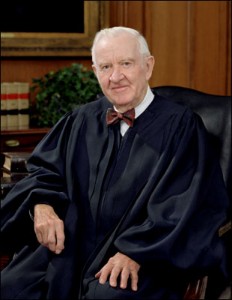Cory Maples May Avoid Procedural Default, But Will Anyone Else Ride His Coattails?
The Supreme Court ruled earlier this week that habeas petitioner Cory Maples may not have to bear the consequences of a truly egregious dereliction of duty by his pro bono lawyers. The lower federal courts had refused to consider Maples’ petition on the merits because he had missed a filing deadline in state court. Normally, criminal defendants are stuck with the mistakes of their lawyers, but in this case — “a veritable perfect storm of misfortune,” as Justice Alito called it — the defendant will have another opportunity to litigate his claims. (The full opinion in Maples v. Thomas is here.)
Here’s what happened. Maples was convicted of murder and sentenced to death by an Alabama state court. His direct appeals were unsuccessful. He then launched a collateral attack in state trial court. The Supreme Court recounted what happened next:

